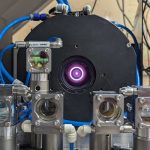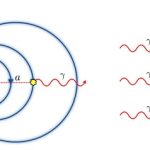Red dwarf stars might starve alien plants of the quality light they need to...
Red dwarfs make up the vast majority of stars in the galaxy.
Such ubiquity means they host the majority of rocky exoplanets we’ve found so...
Why established battery giants still hold the advantage in the sodium-ion era
Sodium-ion batteries are often described as the next big thing in clean energy storage, promising lower costs and freedom from scarce materials like lithium...
How natural hydrogen, hiding deep in the Earth, could serve as a new energy...
In the search for more, new and cleaner sources of energy, a largely untapped resource is emerging: natural hydrogen.
Unlike hydrogen produced from industrial processes,...
Scientists create the hardest test ever—and AI is failing it
For years, scientists have measured artificial intelligence using tests originally designed for humans.
But as AI systems improved, many of these exams became too easy....
How long do civilizations last
It is one of the most famous questions in science, and it was asked, as legend has it, over lunch.
Enrico Fermi, the physicist who...
Why breakthrough solar cells often fail to reach your roof
Many new energy technologies look impressive in the laboratory but never become real products.
Solar cells are a clear example. Scientists can achieve record performance...
Scientists discover how to block noise without blocking airflow
Designing spaces that are both well ventilated and quiet has always been difficult.
Openings that allow fresh air to circulate—such as vents and ducts—also let...
MIT’s new AI turns creative 3D designs into objects that won’t break
Generative artificial intelligence can produce amazing designs for objects such as decorations, furniture, and accessories.
With a simple text prompt, AI tools can create detailed...
How an ordinary umbrella can trick and capture autonomous drones
Autonomous drones that can follow people or objects on their own are becoming more common in policing, border security, and surveillance.
These aircraft use camera-based...
Scientists discover cost-saving way to build structures on the moon
Scientists are exploring an exciting idea for future space missions: building structures on the Moon using the Moon’s own soil.
A new study shows that...
Raincoat no longer waterproof? Why—and how to fix it
You pull on your rain jacket, step out into the storm, and within half an hour your undershirt is soaked.
The jacket you purchased as...
AI eye test could catch silent blindness earlier than doctors alone
Glaucoma is a serious eye disease that slowly damages vision and can lead to permanent blindness if it is not treated.
It is sometimes called...
FEATURED
New way to kill superbugs in the International Space Station
In a new study, researchers have taken another small step towards deep space exploration.
They tested a new silver- and ruthenium-based antimicrobial coating aboard the...
Scientists develop world’s strongest ultra-short laser pulses
Researchers from ETH Zurich have developed a laser that produces the strongest ultra-short pulses to date, setting a new world record in laser technology.
Led...
Scientists develop electrified charcoal sponge to capture CO₂ from air
Researchers have created a new, low-cost, and energy-efficient method for capturing carbon dioxide (CO₂) directly from the air using an electrified charcoal "sponge."
This breakthrough...
White dwarfs pause their cooling, giving planets a second chance for habitability
When we first began searching for planets around other stars, one of the surprising discoveries was that there are planets orbiting white dwarfs.
The first...
Scientists say a nearby supernova could solve the mystery of dark matter
For nearly 90 years, scientists have been searching for answers about dark matter—the invisible substance that makes up 85% of the universe’s matter.
Now, researchers...





















